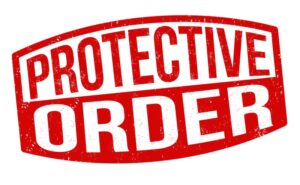
Domestic Violence Protection Orders in Monroe for VICTIMS: What You Need to Know
VICTIMS of Domestic Violence – 50B Domestic Violence Protection Orders in Monroe: What You Need to Know
Domestic violence is a pervasive problem that rarely receives the attention it deserves. Union County, North Carolina, is no exception to this unfortunate reality. As legal counsel for people facing complex family issues,  we can help file for Domestic Violence Protection Orders in Monroe.
we can help file for Domestic Violence Protection Orders in Monroe.
We can also appear with you at the Court hearing in Monroe District Court.
A recent study by the U.S. Department of Justice found that one in four women are victims of domestic violence at some point during their lives, with Native American/Alaskan Native women having the highest rates of domestic violence at 46.5% followed by African-American women at 35%.
Domestic violence is a crime that affects victims, no matter their race or socioeconomic status. People from all kinds of backgrounds seek protection orders.
The effects of domestic violence on minor children are well known and quite serious.
Obtaining a protection order against an abuser may begin first by filing ex parte Complaint and Motion with the Clerk’s Office.
Ex Parte Domestic Violence Protection Orders in Monroe
Family law attorneys, law enforcement officers, and court personnel may refer to a temporary protection order as a “10-day Order” as a ” Ex Parte 50B.”
DVPO’s are available in District Court in North Carolina to assist victims of domestic violence as a means of obtaining immediate help and protection from the person who has been terrorizing them.
They also can serve as a way for law enforcement to respond to complaints of DV, especially in instances of enforcing violations of a no contact Order.
Once an ex parte Protection Order is granted, which is a type of temporary restraining order, “Service of Process” begins.
That’s where the representatives from the court system “serve” the abuser with official notice of the civil lawsuit.
That’s also when they are officially advised of the protection order process and court hearing date.
What happens if someone violates a DVPO?
Once served, violation of even a temporary restraining order, specifically the “ten day ex parte protection order” is a serious criminal offense.
A 50B Order in civil court is separate and distinct from criminal court. A temporary order may affect the immediate custody of minor children.
A Motion for a protection order may be accompanied by related criminal charges.
In Monroe, North Carolina, the court hearing for the DVPO is on a different day than when any charges like Assault on a Female, Communicating Threats, Stalking, and Harassing Phone Calls will be handled on a court date in criminal court.
Depending on the type of criminal charges, that may take place in District Court or Superior Court.
Who can file a restraining order in North Carolina?
North Carolina General Statute 50B-1 lays out the requirements to obtain a domestic violence  protective order. It includes things like:
protective order. It includes things like:
- The person seeking the DVPO must be in fear of “immediate serious bodily injury.” That fear can be based on either past actions, violent or threatening acts, or current threats.
- Protection Orders require one of several different kinds of relationships with the abuser. This includes current or former spouses, people who have children together, live-in partners, people involved in dating relationships, or anyone else currently residing together.
- The abuser must have committed an act of domestic violence against the petitioner within the past year. Domestic violence is defined as “any assault or physical injury resulting from sexual battery, any threat of imminent physical violence, or any physical violence committed against that person by a relative, household member, or current or former sexual or intimate partner.”
It is important to remember that domestic violence can be charged as a misdemeanor crime under NC General Statute 14-32.2(a), even if the DVPO is filed at the magistrate level at the country courthouse.
This means that even if you are successful in obtaining an order for protection, the abuser may still be prosecuted criminally. Entry of a Domestic Violence Protection Orders in Monroe does not affect the criminal case. The dismissal of protection orders does not result in an automatic dismissal of criminal charges pending at the Union County courthouse.
What is the process for getting a Domestic Violence 50B restraining order in Monroe NC?
The process for obtaining a Domestic Violence 50B protective order is relatively straightforward. 
Fill out paperwork:
The petitioner should ask the court clerk at the Union County Courthouse in Monroe to provide them with a Complaint and Motion for Domestic Violence Protective Order (Form AOC-CV-303).
Although it may seem daunting, the petitioner need only complete Complaint and Motion, which may include a short statement describing why they seek protection from intimate partner violence.
Only the court may extend a 10-day temporary restraining order to a one year order.
Issues regarding permanent child custody, child support, and long term visitation of minor children are often resolved through a civil filing under Chapter 50 of the general statutes.
Attend Court – Hearing for Protective Order:
If the Complaint and Motion for Protection Order is uncontested by the abuser, then a hearing may be avoided altogether.
How to File a Complaint for Domestic Violence Protective Order
The temporary order may be extended, when legally and factually appropriate, unless the complaining party not longer feels they need protection or requests the protection Order not be extended for an additional period of time.
If there is a contested DVPO, both the petitioner and defendant appear before a judge. At this hearing, each party can make their case for why the protective order should be ordered or denied.
** NOTE: A Motion and Complaint for Domestic Violence Protective Order (DVPO) does not always result in an Order of Protection or Protective Order. The matter may be set for further hearing by a District Court Judge hear the matter and make Findings of Fact and the issuance of a protective order as appropriate.
Domestic Violence Protective Orders are an important way to stop acts of DV and obtaining immediate protection from the person who has been inflicting pain and fear.
For more information regarding Domestic Violence Protective Orders or any other family law issues such as child support or the protection order process, contact our knowledgeable Monroe family law attorneys for an initial consultation.
We represent clients in Union County, including all of the following cities: Monroe, Waxhaw, Indian Trail, Wingate, and Weddington, North Carolina. We also serve clients throughout the surrounding counties of Mecklenburg County (Charlotte) and Iredell County (Mooresville, Statesville) in both District and Superior Court.
What protections are available under a domestic violence protection order?
A domestic violence protection order (DVPO) is a court order, which means it must be obeyed and enforced by  law enforcement. If an abuser violates the DVPO, he can be arrested for a crime and subsequently prosecuted.
law enforcement. If an abuser violates the DVPO, he can be arrested for a crime and subsequently prosecuted.
In addition to having criminal sanctions for any violations of a DVPO, abusers may also face consequences at the civil level.
Since domestic violence is a form of intentional tort, an abuser may be sued for monetary damages in a civil court case by his victim.
A DVPO can be granted against someone who is an “intimate partner” or has lived with or has had a dating relationship with the petitioner.
If the abusive relationship involves a family member, like a spouse or ex-spouse, child, stepchild, parent, stepparent, grandparent, sibling or stepsibling of the petitioner; then they may be subject to DVPO protection.
What is covered by a domestic violence protective order?
Domestic Violence Protection Orders in Monroe usually cover and protect the victim and may include protection of minor children, as may be necessary and appropriate for their Best Interests. If a DVPO is granted on behalf of a minor child or children, then it will specifically say so in writing.
Instructions for filing for a DVPO in North Carolina
The DVPO is written to help keep you (and your kids) safe from future harm by the abuser. Some of the more common protections that are included in a DVPO may include:
- Prohibiting abuse, including physical, verbal, sexual assault, and emotional abuse
- Enjoining the abuser from contacting you at home or work or anywhere else you might be
- Granting exclusive use and possession of your home to you and excluding the abuser
- Allowing you to have temporary custody of any minor children
- Allowing you to have temporary use of a vehicle if necessary, including keeping the car(s) in your
If you are concerned that your ex will use firearms against you, then you should specifically request that the judge include the prohibition of firearms in your DVPO.
Protections against an Abusive Parent
How do you prepare for a domestic violence case?
Your attorney will need to know as much as possible about the violence that you have suffered through. This includes:
- Dates and times of all incidents
- Locations of those incidents
- Ages and names of children involved in the incidents
- Photographs, real evidence (like hospital records) and other documentation related to injuries sustained
- Any prior Court Orders or Permanent Child Custody ORder from other jurisdictions relating to custody or a similar ex parte order
If you have been physically abused, then your attorney will also need to know about any broken bones, black eyes, or other types of injuries. In some cases, they may even need to contact a doctor in order to get a record of the abuse.
What evidence do I need?
The more documentation and evidence of abuse that you can provide, the better your case will likely be. This includes, but is not limited to things like:
- Photos of injuries you have sustained or damage to personal property
- Hospital records related to injuries or hospitalization
- Witness Testimony —from people who can give direct evidence that they witnessed or overheard an incident of violence, threatened abuse, or saw resulting injuries of domestic abuse
- Police Reports prepared by a law enforcement officer
If you or a loved one needs help with abuse and/or protective orders, or would like to petition for a protective order, click here to schedule a confidential consultation.
The family law attorneys at Powers Law Firm, P.A. represent clients in Union County, North Carolina, who need help obtaining child custody and child visitation, want to establish or modify child support, or need help with a domestic violence order.
Information about 50B Orders in Monroe NC
What are the consequences of Domestic Violence to children?
Children witnessing domestic violence need help and support in coping with the violence they have seen and heard.
It is important to encourage your child to talk about their feelings, fears, concerns over threatened abuse, and expectations of both themselves and the abuser.
By encouraging them to express their feelings about domestic abuse you can be sure that they are getting the emotional support they need during
What are the consequences of Domestic Violence to an adult victim?
When you are the victim of domestic violence it can be physically, emotionally, socially, and financially damaging.
Financial abuse can cause many problems for your future because you will not have money to support yourself or your family.
Sexual abuse is a serious crime in North Carolina; allegations of a sex crime, sexual violence, and sexual abuse will be actively investigated by law enforcement.
What is Stalking?
Stalking is the crime of following someone around to monitor their behaviors or activities.
It can be done by repeatedly calling, texting, messaging on social media sites, showing up at your work or home, vandalizing your property and other similar actions.
The purpose of stalking is typically not for physical harm but instead to make someone feel intimidated or afraid.
If you believe you or a family member is a victim of stalking or sexual assault, contact law enforcement and file a police report.
Advise them where the abuse occurred and where the alleged abuser may be located.
Signs of stalking may include things like:
- Repeatedly calls or sends text messages.
- Sends gifts, letters, and other items to your home, school, or work without a specific request from you for them.
- Monitors your time spent on the computer, cell phone, social media sites, and other areas where you have an online presence.
- Shows up at places you are without a legitimate reason for being there. This could be your home, work during the business day, or the children’s school.
- Makes threats of harm against you, your family, pets, or property or family home
- Attempts to have an innocent person harmed if they are in a romantic or social relationship with you.
- The alleged abuser attempts to have you harmed if they are in romantic or social relationships with you.
- Conducts research on you and your home, school, work, and other areas where you spend time. This can include information from public records as well as the internet.
- Pretends to be someone else to form a relationship with you.
What are some signs that I may be a victim of Domestic Violence?
You could be the victim of domestic violence:
- If you are intimidated by your partner by him/her following you, making threats of harm.
- If your partner has a history of impulsive, violent behavior or domestic abuse towards you or a family member.
- If your partner shows jealousy of you spending time with friends and family members.
- If your partner keeps track of everywhere you go and tries to make situations where he/she can be alone with you.
- If your partner intimidates you by using physical size.
- If your partner is in violation of a civil protection order, temporary order, or any condition of release or bond or protection order set by a District or Superior Court judge.
- If your partner makes decisions for you that affect both of you or the family. For example, withholding money to buy groceries because he/she is angry with you about something unrelated.
What happens if I don’t press charges?
If the abuse is happening now and you choose not to press charges, it’s still a good idea to talk with a local domestic violence advocate or shelter representative who can help you stay safe.
They may be able to assist in putting together a safety plan for you and your children.
An attorney can explain the benefits of a long-term protection order to you and the process of seeking a temporary order at the Union County Courthouse.
Will the Judge be mad at me?
No. Judges are aware that many victims stay in abusive relationships and go back to their abusers, even after significant instances of dating violence or violence in the family home. Domestic Violence Protection Orders in Monroe are given close, careful consideration legal professionals.
Do I need an attorney?
It is not required, but it can be helpful to hire an attorney if you are seeking a temporary order or one year protective order against your abuser.
Family law attorneys can explain temporary support, temporary orders, custody issues, and visitation with your current or former spouse or co-parent.
While a trusted friend or family member may be a great resource for emotional support, only a licensed attorney can give legal advice and represent you in court in North Carolina.
Are Harassing Phone Calls a Type of Domestic Violence?
Yes, harassing phone calls can be a part of domestic violence and can lead to stalking charges.
If someone is calling at work or home, leaving messages on your answering machine, or if they’re calling you during odd hours of the night/morning it may be considered harassment.
You may be entitled to a temporary order or other protective order under Chapter 50, Chapter 50B, or Chapter 50C depending on the nature and circumstances of your individual case.
I feel like I’m in danger, what do I do?
If you are afraid for your life or feel like you are in immediate danger, call 9-1-1.
When the police arrive, tell them what’s going on and show them any evidence you have of the abuse. Also, let them know if there is a weapon in your home (or current address) that belongs to your abuser.
If there is a protection order or temporary order in place, advise law enforcement. If you have a copy of the protection order, give them a copy to review.
What are some common myths about Domestic Violence?
Myth: There’s no help available for someone who is being abused.
Reality: There are different kinds of help and support available for victims and their children.
Some people do not realize it but there are lawyers, police officers, judges, and court personnel who understand the dynamics of domestic violence and how to deal with them.
And that’s not to mention the many good support organizations throughout North Carolina.
You are not alone, help is available. That’s one reason our telephone number is: 704-342-HELP
Myth: Men who are being abused by their wives/girlfriends or who want a protection order are weak.
Reality: No one should be abused no matter their sex or background. There are thousands of men in this country who have experienced abuse in their relationships and many of them are intimidated into staying quiet.
No one should be abused no matter their sex or background. No one should be subject to a sexual assault, dating violence, or live perpetually in fear.
Myth: Domestic Violence only happens in lower-income homes/rural areas.
Reality: Anyone can be a victim of domestic violence regardless of education, race, religion, age, sexual orientation, etc., and may benefit from the proper issuance of a protection order.
Myth: Domestic violence only happens outside of the home.
Reality: A large number of domestic violence cases take place in homes while children are present. This is how they learn to act, love, and solve their problems.
Do I need a lawyer for a Domestic Violence case?
A lawyer is not required; but, if you are trying to get temporary orders or a one year protective order against your abuser, it may be helpful to hire an attorney.
Family law attorneys can explain temporary support, custody issues, and visitation with your current or former spouse or co-parent.
When is the best time to hire a divorce lawyer?
If either you or a household member is subject to abuse, we think the best time to hire a family law attorney is as early as possible in the divorce process.
That’s true even if you and your spouse can agree the terms of your divorce.
However, if one or both parties cannot agree on some issues or there are contested issues of the divorce, then hiring an attorney may be helpful to you.
We also think it’s a good idea for the parties to resolve parenting plan and child support issues, without litigation, whenever possible; but, when the parties cannot agree on these items it makes sense to contact a family law attorney in Charlotte or Monroe, North Carolina.
If you need help with your legal issue please reach out to us today at 704-342-HELP.
Please note: This information is not intended as legal advice and should not be relied on as such.
For more information on our family law services, visit our website: Charlotte-Divorce-Lawyer.com
How do divorce lawyers help?
If you and your spouse agree on all terms of the divorce, then a family law attorney can assist you preparing a Separation Agreement that might include resolving issues involving:
- Post Separation Support
- Alimony
- Equitable Distribution
- Child Custody
- Child Support
Divorce lawyers explain how court works, what to expect when going through a divorce, and how much it costs to hire an attorney. Divorce lawyers can also help file Domestic Violence Protection Orders in Monroe and guide you through the process.
If you need help with your legal issue please reach out to us today at 704-342-HELP
Prior to discussing the intricacies of your individual case, our firm will perform a “conflict check” to confirm availability of representation.
Learn More